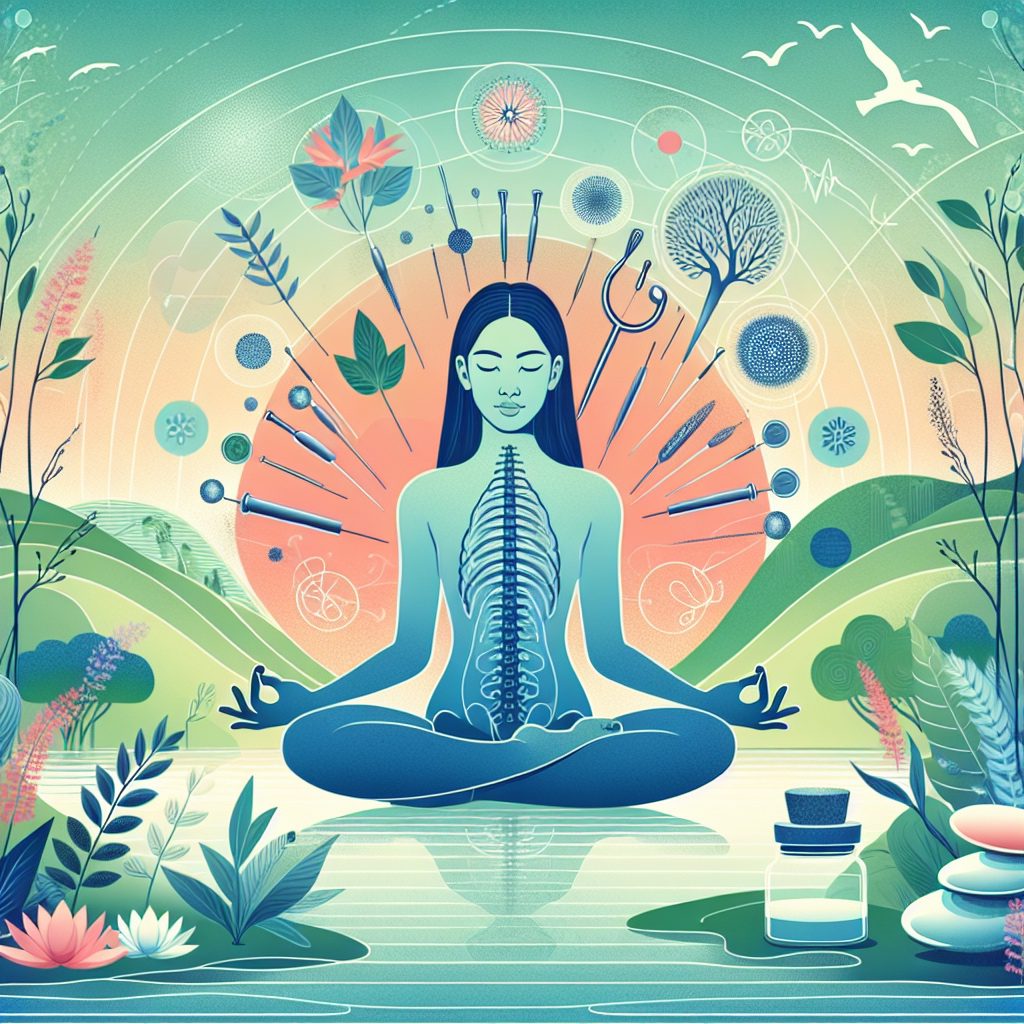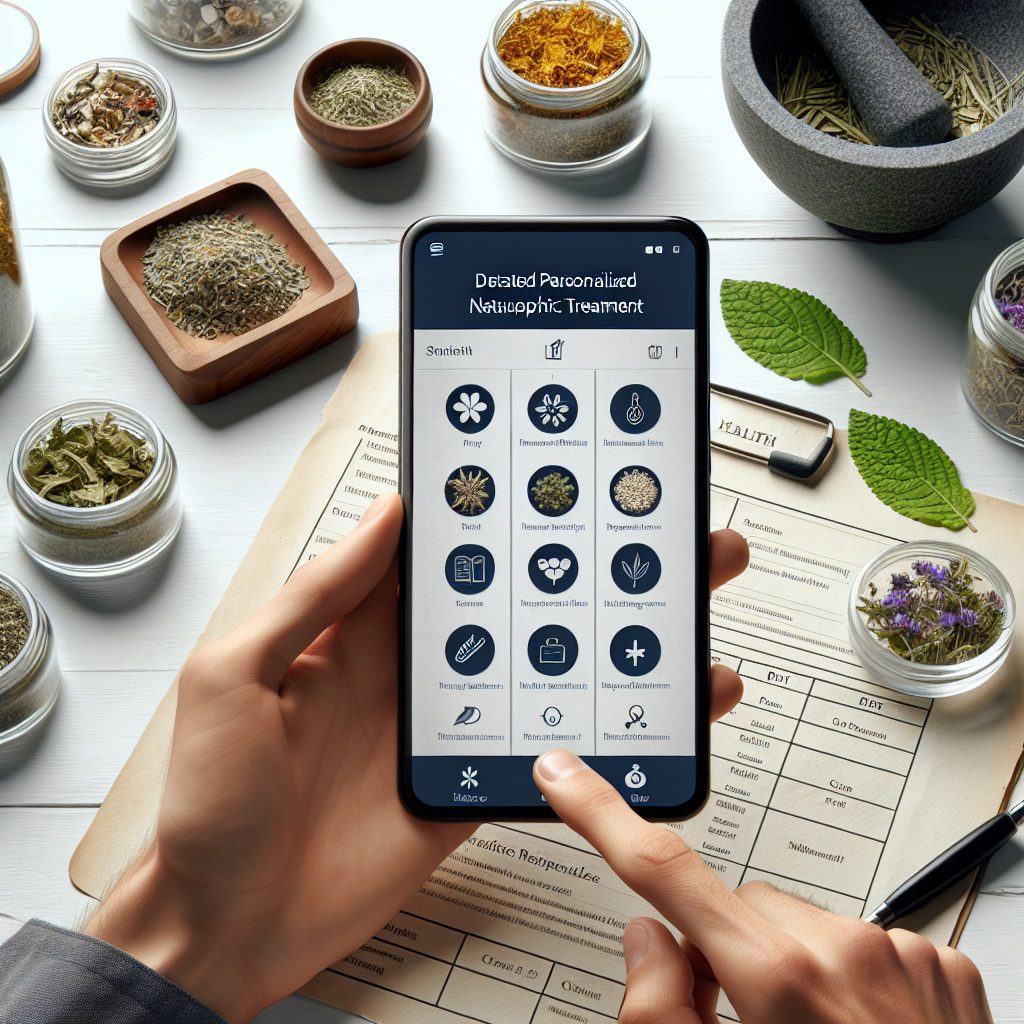In recent years, a quiet revolution has been taking place in American wellness culture. More and more people are turning to ancient Eastern medical traditions – some dating back thousands of years – to address their very modern health concerns. This shift isn’t happening by accident. As our lives grow increasingly hectic and disconnected, many Americans are seeking something deeper than quick fixes for their wellness needs.
The numbers tell a compelling story. The U.S. complementary and alternative medicine market was valued at nearly $29 billion in 2023 and is projected to reach an astounding $229 billion by 2033, highlighting the growing scientific validation of traditional herbal medicine. Acupuncture, once considered exotic, is now regularly offered in conventional medical settings including hospitals, medical school clinics, and veterans’ healthcare centers across America.
This growing embrace of Eastern wellness traditions speaks to something many of us feel intuitively – that true health encompasses more than just treating symptoms. It’s about nurturing harmony between mind, body, and spirit. For those seeking this kind of balanced approach, Eastern medicine offers time-tested wisdom that addresses wellness from a fundamentally different perspective than conventional Western practices.
The Essence of Eastern Medicine: A Holistic Approach to Wellness
At its core, Eastern medicine views health through a holistic lens. Unlike Western medicine’s focus on treating specific symptoms or diseases, Eastern approaches consider the entire person – physical, mental, emotional, and spiritual dimensions included.
Acupuncture stands as perhaps the most recognized Eastern medicine practice in America today. This ancient technique involves inserting thin needles at specific points along the body’s meridians, or energy pathways. While once met with skepticism, acupuncture has gained significant scientific validation, with research supporting its effectiveness for pain management, stress reduction, and treating various health conditions. Acupuncture’s ability to help people tune into their body’s signals highlights why it has become increasingly mainstream. No longer confined to specialized clinics, acupuncture’s evolution in the United States over the past fifty years highlights its transition from an alternative Eastern practice to a mainstream medical treatment embraced by millions.
Herbal therapy represents another cornerstone of Eastern medicine gaining popularity in America. Unlike synthetic medications that often target specific symptoms, Eastern herbs are prescribed to restore balance to the body’s systems. Herbal formulations might combine multiple ingredients working synergistically to address complex health conditions while supporting overall wellness. Many Americans are discovering that these natural remedies can effectively address chronic issues like digestive problems, sleep disturbances, and stress-related conditions with fewer side effects than pharmaceutical options.
The mind-body practices of yoga and meditation, while not strictly medical treatments in the traditional sense, form essential components of Eastern approaches to health. These disciplines recognize the profound connection between mental and physical wellbeing. Regular yoga practice improves flexibility and strength while calming the nervous system. Meditation, meanwhile, has been shown to reduce stress hormones, lower blood pressure, and even alter brain structure in positive ways. Together, these practices foster resilience and balance in a world that often feels overwhelming.
What unites these diverse approaches is their foundation in a fundamentally different understanding of health than Western medicine typically employs. Eastern medicine sees the human body as an interconnected energy system where imbalances in one area affect the whole. Diagnosis often involves examining subtle signs like tongue appearance, pulse qualities, and emotional states to identify underlying patterns of disharmony before they manifest as serious disease.
Bridging Ancient Wisdom and Modern Science
Perhaps the most exciting development in American wellness isn’t the adoption of Eastern medicine practices in isolation, but their thoughtful integration with conventional healthcare. This complementary approach leverages the strengths of both traditions – Western medicine’s unparalleled emergency care and diagnostic technology alongside Eastern medicine’s holistic prevention strategies and non-pharmaceutical treatment options.
“What we’re seeing isn’t an either/or situation,” explains Dr. Sarah Chen, who practices integrative medicine in Boston. “The most effective healthcare approach combines the precision of Western diagnostics with the holistic perspective of Eastern traditions. My patients benefit from having access to the best of both worlds.”
This integration is happening at prestigious medical institutions across the country. Major hospitals now offer acupuncture alongside conventional pain management. Medical schools are incorporating courses on traditional Chinese medicine and Ayurveda into their curricula. Even the National Institutes of Health has a dedicated center for complementary and integrative health research, legitimizing these approaches through rigorous scientific study.
For patients, this integration presents exciting possibilities. Someone dealing with chronic back pain might receive conventional imaging diagnostics and physical therapy alongside acupuncture sessions. A cancer patient might complement their medical treatment with meditation practices that reduce treatment side effects and improve quality of life. This comprehensive approach addresses not just the disease but the whole person experiencing it.
The benefits extend beyond individual treatment plans. Eastern medicine’s emphasis on prevention aligns perfectly with modern healthcare’s growing focus on wellness rather than merely treating illness. Traditional practices like seasonal eating, stress management through meditation, and regular physical activity through yoga help people maintain balance before serious health issues develop – potentially reducing healthcare costs in the long run.
Real Lives, Real Change: Eastern Medicine in Practice
The impact of Eastern medicine isn’t just theoretical – it’s changing real lives across America. Take Michelle, a 42-year-old marketing executive from Chicago who struggled with debilitating migraines for over a decade.
“I tried everything my doctors recommended – multiple medications, diet changes, even Botox injections,” Michelle says. “Nothing provided lasting relief. I was skeptical about acupuncture but desperate enough to try it. After eight weeks of regular treatments, my migraine frequency dropped by 70%. It wasn’t an overnight miracle, but it gave me my life back in a way no other treatment had.”
Stories like Michelle’s are increasingly common. James, a 68-year-old retiree dealing with arthritis pain, found that a combination of gentle yoga and Chinese herbal formulations significantly reduced his discomfort and improved his mobility without the digestive side effects he experienced with prescription anti-inflammatories.
For younger Americans like Aiden, a 29-year-old software developer, Eastern wellness practices provide valuable tools for managing modern stressors. “My anxiety was through the roof from my high-pressure job. Learning meditation techniques from my yoga instructor gave me practical tools to calm my nervous system when I feel overwhelmed. It’s become as essential to my day as brushing my teeth.”
These testimonials highlight an important point: Eastern medicine often shines in addressing conditions where conventional approaches have limitations – chronic pain, stress-related disorders, autoimmune conditions, and digestive problems. Rather than simply masking symptoms, these holistic approaches help individuals identify and address root causes of discomfort or disease.
What’s particularly noteworthy is how these practices empower people to participate actively in their own healing. Instead of passively receiving treatment, individuals learn techniques they can practice daily – breathing exercises, meditation, gentle movements, dietary adjustments – creating sustainable lifestyle changes that support ongoing wellness.
The HerbalsZen Approach: Harmony in a Cup
This growing embrace of Eastern wellness wisdom aligns perfectly with HerbalsZen’s core philosophy. Our boutique herbal tea collection was born from a passion for Eastern herbal traditions and the pursuit of mind-body balance. We believe that true wellness comes from listening to your body’s voice and responding with natural, harmonious support.
“The beauty of herbal teas is their accessibility,” notes Lisa, a regular HerbalsZen customer and self-described health enthusiast. “Not everyone can make it to an acupuncture appointment or yoga class regularly, but brewing a cup of balancing tea is something I can easily incorporate into my daily routine. It’s a small act of self-care that makes a noticeable difference in how I feel.”
Each HerbalsZen blend draws on centuries of Eastern herbal wisdom. Our Sour Jujube Seed, Poria & Lily Tea, for instance, combines ingredients traditionally used to calm the mind and nourish the spirit – perfect for those moments when life feels overwhelming. The Astragalus, Codonopsis & Goji Berry blend incorporates adaptogenic herbs that have been used in Eastern medicine to support vitality and immune function.
What separates these formulations from typical Western herbal preparations is their emphasis on synergy. In Eastern herbal traditions, ingredients aren’t combined randomly but carefully balanced to complement and enhance each other’s properties. This holistic approach mirrors the philosophy that wellness isn’t about addressing isolated symptoms but supporting the body’s natural harmony.
Incorporating these teas into your daily routine offers a simple yet meaningful way to practice the preventative approach that Eastern medicine emphasizes. Rather than waiting until you’re ill to address your health, regular consumption of carefully formulated herbal teas can help maintain balance and address minor imbalances before they develop into larger concerns.
This approach embodies what Eastern medicine has always understood – that maintaining wellness is easier than recovering it once lost. By making self-care a daily habit through practices like enjoying herbal tea, we honor our connection to both ancient wisdom and our own bodies’ needs.
The Future of Wellness: A Balanced Path Forward
As we look toward the future of health and wellness in America, it’s clear that Eastern medicine will continue playing an increasingly important role. This isn’t a rejection of modern science but an enrichment of it – bringing together diverse healing traditions to create a more complete understanding of human health.
The growing popularization of yoga, acupuncture, herbs, and other Eastern wellness practices represents more than just a trend. It signals a fundamental shift in how many Americans think about their health – moving from a reactive, symptom-focused approach to a proactive, holistic one that values prevention and addresses root causes.
For those curious about exploring Eastern medicine, the journey can begin with simple steps. Perhaps it’s trying a meditation app, attending a yoga class, consulting with an acupuncturist about a chronic issue, or incorporating beginner-friendly herbal teas like those from HerbalsZen into your daily routine. The beauty of this approach is that it meets you wherever you are on your wellness journey.
As we embrace these ancient practices in our modern lives, we reconnect with a timeless understanding – that true wellness comes from harmony within ourselves and with the natural world around us. By listening to our bodies, respecting natural rhythms, and nurturing balance in all aspects of our lives, we can cultivate vibrant health that sustains us through life’s challenges.
Eastern medicine reminds us that wellness isn’t a destination but a daily practice – a beautiful, ongoing conversation between ourselves and the wisdom of traditions that have supported human health for thousands of years. In that conversation lies not just relief from symptoms but the potential for profound transformation and lasting vitality.




